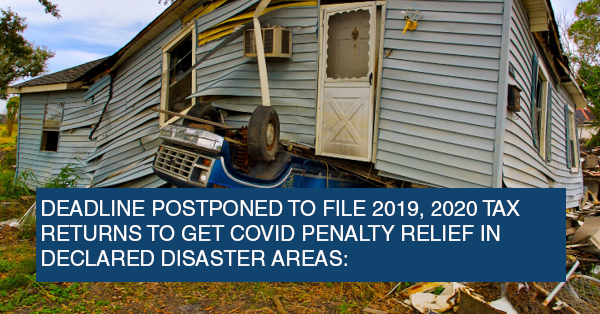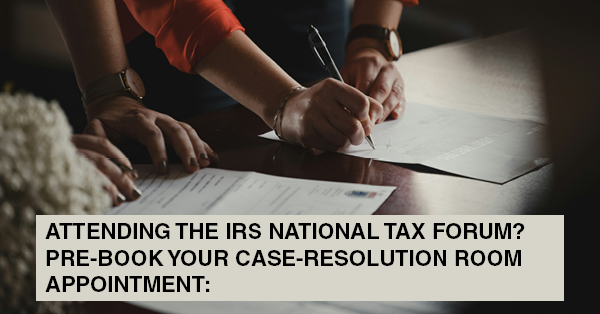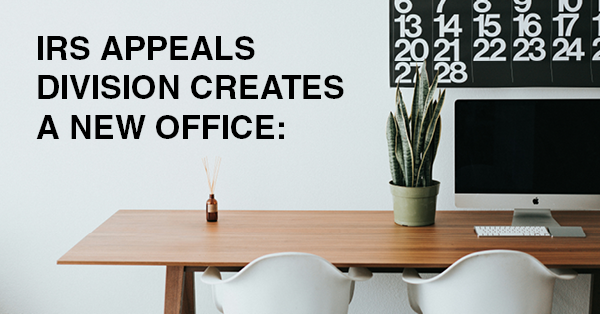DEADLINE POSTPONED TO FILE 2019, 2020 TAX RETURNS TO GET COVID PENALTY RELIEF IN DECLARED DISASTER AREAS:

Taxpayers in areas covered by certain FEMA disaster declarations may have more time to file their returns to qualify for the penalty relief under Notice 2022-36 for their 2019 and 2020 tax returns.
Under Notice 2022-36, penalties for late-filing certain tax returns, as well as penalties for not reporting certain required information on the Form 1065 or Form 1120-S, are waived or abated if the relevant return was filed on or before September 30, 2022. But individuals and households that reside or have a business in recently declared FEMA disaster areas have postponed deadlines to file the return to get this relief, as noted below.
- Areas with a deadline of November 15, 2022,include:
- Counties in Missouri identified under FEMA's Major Disaster Declaration 4665.
- Counties in Kentucky & identified under FEMA's Major Disaster Declaration 4633.
- The island of St. Croix in the U.S. Virgin Islands.
- Members of the Tribal Nation of the Salt River Pima Maricopa Indian Community.
- Areas with a deadline of February 15, 2023, include:
- Florida,
- Puerto Rico,
- North Carolina,
- South Carolina,
- Areas in Alaska identified under FEMA's Major Disaster Declaration 4672 and
- Hinds County, Mississippi.
The relief under Notice 2022-36 applies to the failure-to-file penalty that is typically assessed at a rate of 5% per month, up to 25% of the unpaid tax when a federal income tax return is filed late. This relief applies to forms in both the Form 1040 and 1120 series, as well as others listed in Notice 2022-36, posted on IRS.gov.
Unlike the failure-to-file penalty, the failure-to-pay penalty and interest will still apply to any unpaid tax. The failure-to-pay penalty is normally 0.5% (one-half-of-one percent) per month, up to 25%. The interest rate is currently 6%, compounded daily.
Penalty relief for 2019 and 2020 returns is not available in some situations, such as where a fraudulent return was filed, where the penalties are part of an accepted offer in compromise or a closing agreement, or where the penalties were finally determined by a court. This relief is limited to the penalties that the notice specifically states are eligible for relief. For ineligible penalties, such as the failure-to-pay penalty, taxpayers may use existing penalty relief procedures, such as applying for relief under the reasonable cause criteria or the First Time Abate program. Visit IRS.gov/penaltyrelief for details.
Different relief applies to 2021 returns. Visit the disaster relief page on IRS.gov for more information about tax year 2021.




